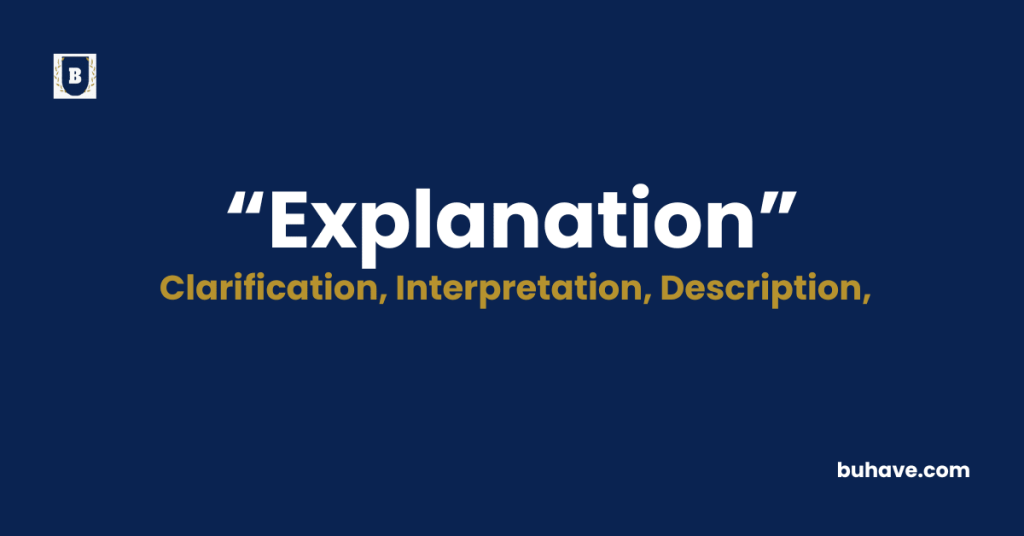The word ‘Explanation’ (Noun) refers to a statement or account that makes something clear or understandable. In this guide, you’ll learn the full definition, synonyms, antonyms, etymology, and real-life examples of how to use ‘Explanation’ correctly in sentences.
Explanation Explained in Depth
A complete and detailed guide to the word ‘Explanation’ including meaning, definition, examples, etymology, synonyms, and antonyms.
Meanings of Explanation
“Explanation” means the act of making something clear, describing the reasons, causes, or meanings behind an event, idea, or action. It often involves clarifying confusion or answering questions to provide better understanding.
Definition
“Explanation” is defined as a statement or reason that clarifies, interprets, or justifies something. It helps someone understand a subject, situation, or problem more clearly, often through detailed description or reasoning.
Etymology
The word “explanation” comes from the Latin explanatio, which stems from explanare, meaning “to make plain.” This root breaks down into ex- (“out”) and planus (“flat, level”), metaphorically meaning to flatten out or make something understandable.
Example Sentences
- Her explanation of the math problem helped the entire class understand it better.
- The manager offered a clear explanation for the policy change.
- No explanation was given for the sudden cancellation of the event.
Explanation Synonyms
- Clarification
- Interpretation
- Justification
- Account
- Description
- Definition
- Elucidation
- Rationale
- Breakdown
- Illustration
Explanation Antonyms
- Confusion
- Mystery
- Obscurity
- Misunderstanding
- Ambiguity
- Puzzle
- Question
- Vagueness
- Uncertainty
- Enigma
FAQs about Explanation
Here are some frequently asked questions (FAQs) about the word “Explanation”
1. What is the purpose of an explanation?
An explanation aims to clarify something that may be confusing, misunderstood, or unknown, helping others comprehend a topic or event.
2. How is an explanation different from a definition?
A definition gives the meaning of a word or term, while an explanation describes why or how something works or happens.
3. Can explanations be subjective?
Yes, explanations can be based on opinion or perspective, especially in social or emotional contexts.
4. Is an explanation always verbal?
No, explanations can be written, visual, or demonstrated through actions or examples.
5. What makes a good explanation?
A good explanation is clear, concise, well-structured, and tailored to the audience’s level of understanding.

















